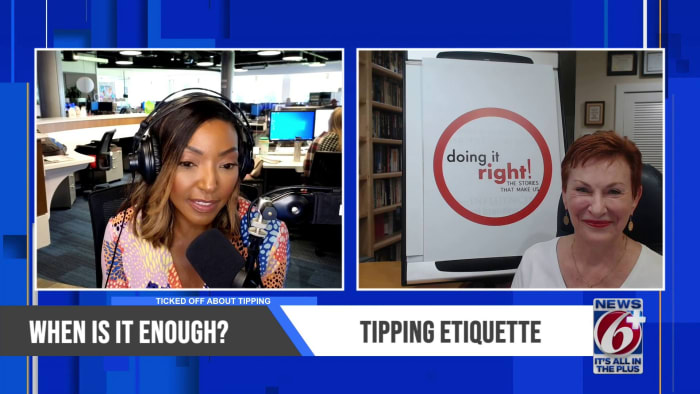Perhaps you’ve noticed. We have reached a tipping point in the country over tipping.
To tip or not to tip has led to Shakespearean soliloquies by customers explaining why they refuse to tip for certain things.
During the height of the COVID-19 pandemic, customers were grateful for those who seemingly risked their safety so we could get groceries, order dinner or anything that made our lives feel normal. A nice tip was the least we could do to show gratitude.
But now that we are out about and back to normal, the custom of tipping for just about everything has somehow remained; and customers are upset.
A new study from Pew Research shows most American adults say tipping is expected in more places than it was five years ago, and there’s no real consensus about how tipping should work.



In some states, like mine, someone working for tips is not getting paid minimum wage. So if you don’t tip the waiter, then they could be worse off than a cashier at 7-11 who makes minimum wage.
There is no state in the union where a tipped employee can make less than minimum wage
https://www.ecfr.gov/current/title-29/subtitle-B/chapter-V/subchapter-A/part-531/subpart-D
deleted by creator
Employers must make up the difference if the employee makes less than the federal minimum wage if they don’t make it with tips included is what they’re saying.
deleted by creator
Ideally yes. There are laws, sure. However, in the real world, it doesn’t work that way. In my state, there is a different minimum wage for tipped workers. Back when it affected me personally, it was $2.85 when the minimum wage was $7.25. Now it’s like $10 and $14.
And yes, if the tipped employee doesn’t meet a minimum wage then the employer is supposed to make that up. How often that happens though, I’ve never seen it. And what is an underpaid employee supposed to do? Sue a chain restaurant with all the money they don’t have? Get a pro bono lawyer willing to waste months of their time to help recover the difference of like $300?
I get the altruism, and the simple satisfaction from pointing to laws to try to disprove a person who experienced things in real life. But at some point in your life, you should learn that the real world doesn’t work by pointing to a rule book and crying foul when someone breaks the rules.